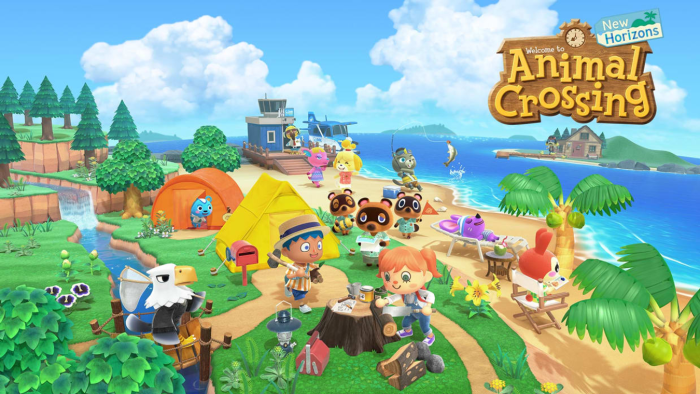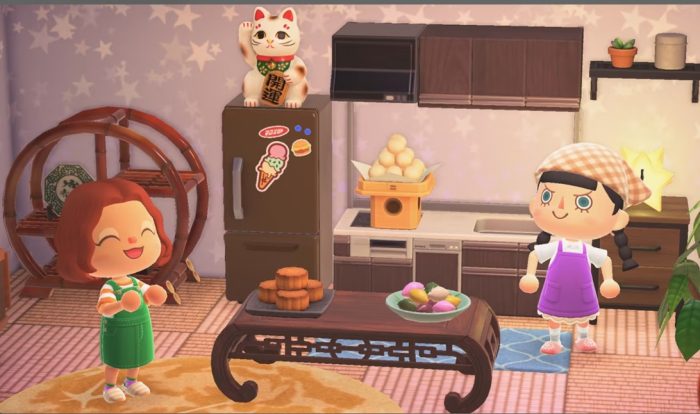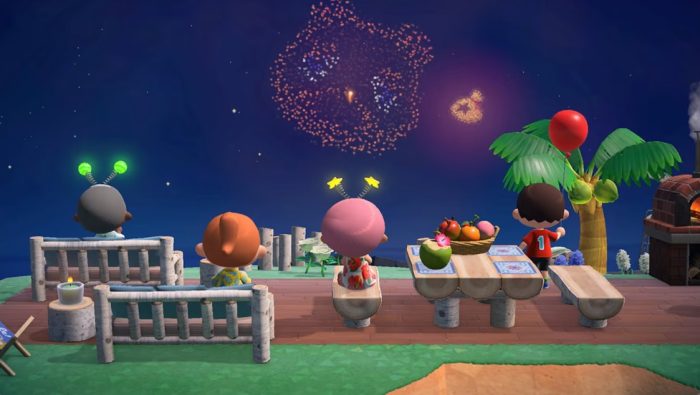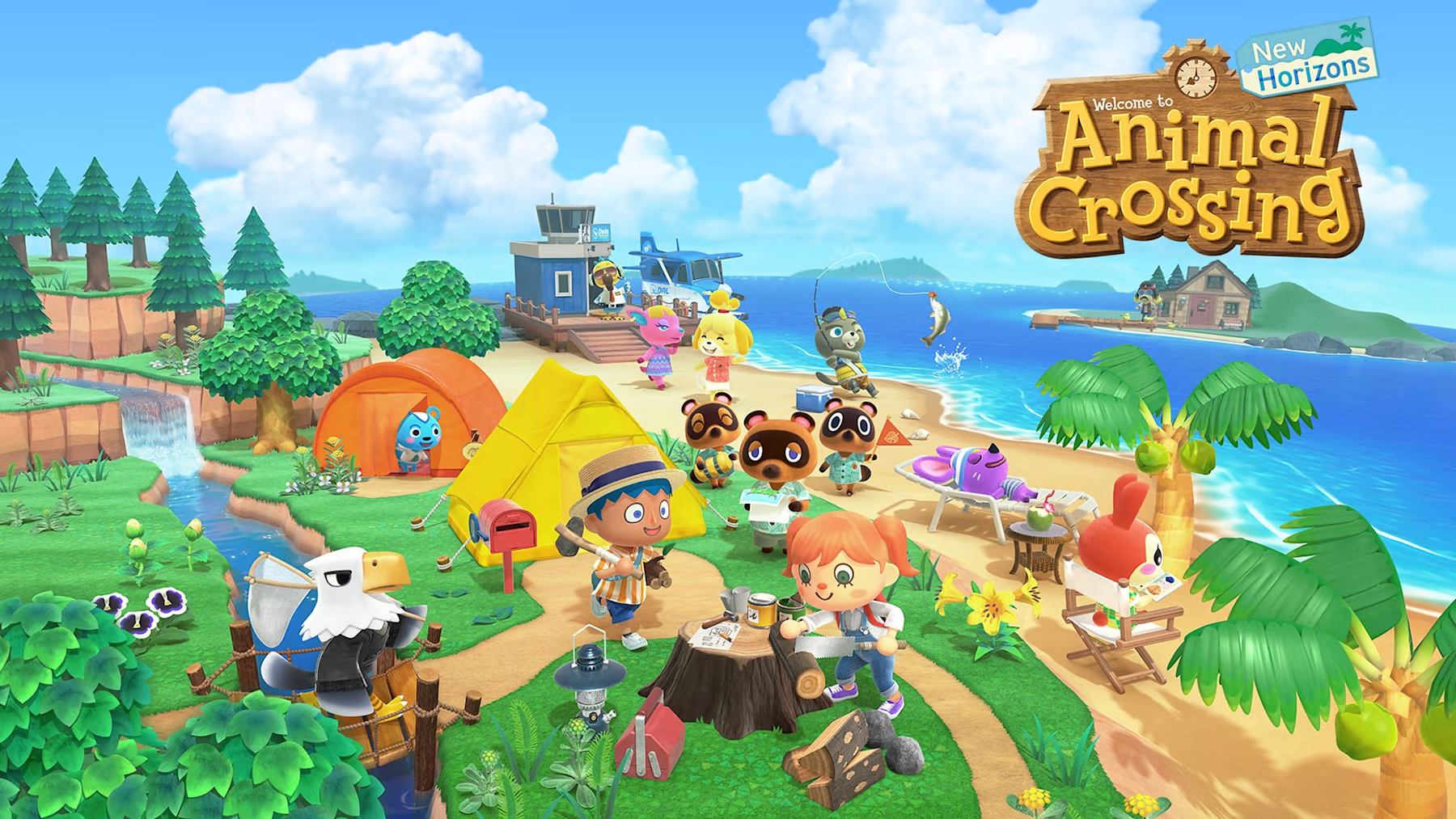Animal Crossing – When Islands Collide
Animal Crossing: New Horizons launched on Nintendo Switch on March 20, 2020—just two days after Capcom quietly celebrated Monster Hunter World surpassing 17 million shipments. It arrived right in the middle of the first wave of global lockdowns. As social distancing became the new norm, Nintendo offered a digital escape that felt like emotional support. No other first-party title that week delivered more than a hammock and a DIY recipe.
Story and Setting
As the latest entry in the laid-back life-sim franchise, New Horizons drops you on a deserted island with naught but Tom Nook’s vague promises and a broken tent. From those humble beginnings, players build a community (and a mortgage) while befriending anthropomorphic neighbors. The narrative is minimal by design: character arcs are driven by player choice, seasonal events, and the ever-present chase for Nook Miles. If a “strong storyline” means unlocking more crafting stations, consider this the most meta RPG ever.

Gameplay Mechanics
- Crafting Overhaul
- DIY recipes turn every stick and shell into a potential accent piece. Efficiency junkies will spot speedrun strats in obsessively farming resources each day.
- Island Customization
- Terraforming feels like unlocking God mode in a gardening simulator—dig a moat, raise a hill, or reroute your entire river system, all with a shovel and a dream.
- Seasonal Events & Nook Miles
- Limited-time events inject variety, though endgame goals can feel like chasing the next carrot-growing contest.
- Multiplayer & Online
- Co-op play for up to eight friends so you can compare furniture tastes—or quietly judge each other’s color schemes without ever leaving your living room.
Visuals and Audio
Graphically, New Horizons embraces a vibrant cartoon pastel palette—think Easter egg meets lazy Sunday afternoon. Character animations are charmingly bouncy, yet you’ll sometimes catch furniture clipping through fences, a minor trip-wire in an otherwise cozy presentation.
The audio direction doubles down on minimalism: the day’s soundtrack evolves in real time (thanks, K.K. Slider), and ambient sounds—waves lapping, insects buzzing—become meditation aids. Don’t be surprised if you start ignoring Spotify playlists and just listen to crickets.

Community and Reviews
Overall Rating: 94% aggregate, 4.7/5 user average across 250,000+ eShop reviews.
Players praise the “instant zen” vibes, near-infinite customization, and the clever stitch-in of real-world seasons. “It’s like therapy with K.K. Slider,” wrote one reviewer, while another quipped, “I haven’t left my island since 2020.”
Criticisms center on two points:
- Repetitive Chores: Daily tasks—shaking trees, catching bugs—can drift into autopilot.
- Pacing of Updates: Major content drops trickle out over months, testing patience once you hit mid-game.
Industry Impact
New Horizons rewrote Nintendo’s sales forecasts, pushing Switch lifetime shipments past 60 million within a year. It also sparked a wave of cottage-core aesthetics across social media—proof that if you give gamers flowers and DIY pottery, they’ll create entire Instagram subcultures.
Beyond numbers, the game has become a cultural touchstone for “comfort gaming,” inspiring academic papers on virtual socialization during real-world crises. When the next big pandemic hits (hopefully not), you can bet devs will study New Horizons as the blueprint for pixel therapy.

Final Verdict
Animal Crossing: New Horizons isn’t reinventing the wheel—but it did pack that wheel in a suitcase, hand you a ticket to a sun-soaked island, and remind you that sometimes the best storyline is the one you write yourself. In the grand tapestry of single-player sims, it’s the softly spoken, dependable friend you never knew you needed. And hey, if you can’t pay your rent to Tom Nook, at least you can craft him a sweet table lamp.

